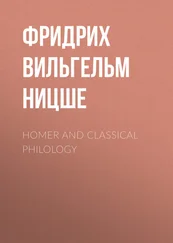Фридрих Ницше - Beyond Good and Evil
Здесь есть возможность читать онлайн «Фридрих Ницше - Beyond Good and Evil» весь текст электронной книги совершенно бесплатно (целиком полную версию без сокращений). В некоторых случаях можно слушать аудио, скачать через торрент в формате fb2 и присутствует краткое содержание. Год выпуска: 2014, Издательство: epubBooks Classics, Жанр: Философия, на английском языке. Описание произведения, (предисловие) а так же отзывы посетителей доступны на портале библиотеки ЛибКат.
- Название:Beyond Good and Evil
- Автор:
- Издательство:epubBooks Classics
- Жанр:
- Год:2014
- ISBN:нет данных
- Рейтинг книги:4 / 5. Голосов: 1
-
Избранное:Добавить в избранное
- Отзывы:
-
Ваша оценка:
- 80
- 1
- 2
- 3
- 4
- 5
Beyond Good and Evil: краткое содержание, описание и аннотация
Предлагаем к чтению аннотацию, описание, краткое содержание или предисловие (зависит от того, что написал сам автор книги «Beyond Good and Evil»). Если вы не нашли необходимую информацию о книге — напишите в комментариях, мы постараемся отыскать её.
Beyond Good and Evil — читать онлайн бесплатно полную книгу (весь текст) целиком
Ниже представлен текст книги, разбитый по страницам. Система сохранения места последней прочитанной страницы, позволяет с удобством читать онлайн бесплатно книгу «Beyond Good and Evil», без необходимости каждый раз заново искать на чём Вы остановились. Поставьте закладку, и сможете в любой момент перейти на страницу, на которой закончили чтение.
Интервал:
Закладка:
37. "What? Does not that mean in popular language: God is disproved, but not the devil?"—On the contrary! On the contrary, my friends! And who the devil also compels you to speak popularly!
38. As happened finally in all the enlightenment of modern times with the French Revolution (that terrible farce, quite superfluous when judged close at hand, into which, however, the noble and visionary spectators of all Europe have interpreted from a distance their own indignation and enthusiasm so long and passionately, UNTIL THE TEXT HAS DISAPPEARED UNDER THE INTERPRETATION), so a noble posterity might once more misunderstand the whole of the past, and perhaps only thereby make ITS aspect endurable.—Or rather, has not this already happened? Have not we ourselves been—that "noble posterity"? And, in so far as we now comprehend this, is it not—thereby already past?
39. Nobody will very readily regard a doctrine as true merely because it makes people happy or virtuous—excepting, perhaps, the amiable "Idealists," who are enthusiastic about the good, true, and beautiful, and let all kinds of motley, coarse, and good–natured desirabilities swim about promiscuously in their pond. Happiness and virtue are no arguments. It is willingly forgotten, however, even on the part of thoughtful minds, that to make unhappy and to make bad are just as little counter–arguments. A thing could be TRUE, although it were in the highest degree injurious and dangerous; indeed, the fundamental constitution of existence might be such that one succumbed by a full knowledge of it—so that the strength of a mind might be measured by the amount of "truth" it could endure—or to speak more plainly, by the extent to which it REQUIRED truth attenuated, veiled, sweetened, damped, and falsified. But there is no doubt that for the discovery of certain PORTIONS of truth the wicked and unfortunate are more favourably situated and have a greater likelihood of success; not to speak of the wicked who are happy—a species about whom moralists are silent. Perhaps severity and craft are more favourable conditions for the development of strong, independent spirits and philosophers than the gentle, refined, yielding good–nature, and habit of taking things easily, which are prized, and rightly prized in a learned man. Presupposing always, to begin with, that the term "philosopher" be not confined to the philosopher who writes books, or even introduces HIS philosophy into books!—Stendhal furnishes a last feature of the portrait of the free–spirited philosopher, which for the sake of German taste I will not omit to underline—for it is OPPOSED to German taste. "Pour etre bon philosophe," says this last great psychologist, "il faut etre sec, clair, sans illusion. Un banquier, qui a fait fortune, a une partie du caractere requis pour faire des decouvertes en philosophie, c'est–a–dire pour voir clair dans ce qui est."
40. Everything that is profound loves the mask: the profoundest things have a hatred even of figure and likeness. Should not the CONTRARY only be the right disguise for the shame of a God to go about in? A question worth asking!—it would be strange if some mystic has not already ventured on the same kind of thing. There are proceedings of such a delicate nature that it is well to overwhelm them with coarseness and make them unrecognizable; there are actions of love and of an extravagant magnanimity after which nothing can be wiser than to take a stick and thrash the witness soundly: one thereby obscures his recollection. Many a one is able to obscure and abuse his own memory, in order at least to have vengeance on this sole party in the secret: shame is inventive. They are not the worst things of which one is most ashamed: there is not only deceit behind a mask—there is so much goodness in craft. I could imagine that a man with something costly and fragile to conceal, would roll through life clumsily and rotundly like an old, green, heavily–hooped wine–cask: the refinement of his shame requiring it to be so. A man who has depths in his shame meets his destiny and his delicate decisions upon paths which few ever reach, and with regard to the existence of which his nearest and most intimate friends may be ignorant; his mortal danger conceals itself from their eyes, and equally so his regained security. Such a hidden nature, which instinctively employs speech for silence and concealment, and is inexhaustible in evasion of communication, DESIRES and insists that a mask of himself shall occupy his place in the hearts and heads of his friends; and supposing he does not desire it, his eyes will some day be opened to the fact that there is nevertheless a mask of him there—and that it is well to be so. Every profound spirit needs a mask; nay, more, around every profound spirit there continually grows a mask, owing to the constantly false, that is to say, SUPERFICIAL interpretation of every word he utters, every step he takes, every sign of life he manifests.
41. One must subject oneself to one's own tests that one is destined for independence and command, and do so at the right time. One must not avoid one's tests, although they constitute perhaps the most dangerous game one can play, and are in the end tests made only before ourselves and before no other judge. Not to cleave to any person, be it even the dearest—every person is a prison and also a recess. Not to cleave to a fatherland, be it even the most suffering and necessitous—it is even less difficult to detach one's heart from a victorious fatherland. Not to cleave to a sympathy, be it even for higher men, into whose peculiar torture and helplessness chance has given us an insight. Not to cleave to a science, though it tempt one with the most valuable discoveries, apparently specially reserved for us. Not to cleave to one's own liberation, to the voluptuous distance and remoteness of the bird, which always flies further aloft in order always to see more under it—the danger of the flier. Not to cleave to our own virtues, nor become as a whole a victim to any of our specialties, to our "hospitality" for instance, which is the danger of dangers for highly developed and wealthy souls, who deal prodigally, almost indifferently with themselves, and push the virtue of liberality so far that it becomes a vice. One must know how TO CONSERVE ONESELF—the best test of independence.
42. A new order of philosophers is appearing; I shall venture to baptize them by a name not without danger. As far as I understand them, as far as they allow themselves to be understood—for it is their nature to WISH to remain something of a puzzle—these philosophers of the future might rightly, perhaps also wrongly, claim to be designated as "tempters." This name itself is after all only an attempt, or, if it be preferred, a temptation.
43. Will they be new friends of "truth," these coming philosophers? Very probably, for all philosophers hitherto have loved their truths. But assuredly they will not be dogmatists. It must be contrary to their pride, and also contrary to their taste, that their truth should still be truth for every one—that which has hitherto been the secret wish and ultimate purpose of all dogmatic efforts. "My opinion is MY opinion: another person has not easily a right to it"—such a philosopher of the future will say, perhaps. One must renounce the bad taste of wishing to agree with many people. "Good" is no longer good when one's neighbour takes it into his mouth. And how could there be a "common good"! The expression contradicts itself; that which can be common is always of small value. In the end things must be as they are and have always been—the great things remain for the great, the abysses for the profound, the delicacies and thrills for the refined, and, to sum up shortly, everything rare for the rare.
44. Need I say expressly after all this that they will be free, VERY free spirits, these philosophers of the future—as certainly also they will not be merely free spirits, but something more, higher, greater, and fundamentally different, which does not wish to be misunderstood and mistaken? But while I say this, I feel under OBLIGATION almost as much to them as to ourselves (we free spirits who are their heralds and forerunners), to sweep away from ourselves altogether a stupid old prejudice and misunderstanding, which, like a fog, has too long made the conception of "free spirit" obscure. In every country of Europe, and the same in America, there is at present something which makes an abuse of this name a very narrow, prepossessed, enchained class of spirits, who desire almost the opposite of what our intentions and instincts prompt—not to mention that in respect to the NEW philosophers who are appearing, they must still more be closed windows and bolted doors. Briefly and regrettably, they belong to the LEVELLERS, these wrongly named "free spirits"—as glib–tongued and scribe–fingered slaves of the democratic taste and its "modern ideas" all of them men without solitude, without personal solitude, blunt honest fellows to whom neither courage nor honourable conduct ought to be denied, only, they are not free, and are ludicrously superficial, especially in their innate partiality for seeing the cause of almost ALL human misery and failure in the old forms in which society has hitherto existed—a notion which happily inverts the truth entirely! What they would fain attain with all their strength, is the universal, green–meadow happiness of the herd, together with security, safety, comfort, and alleviation of life for every one, their two most frequently chanted songs and doctrines are called "Equality of Rights" and "Sympathy with All Sufferers"—and suffering itself is looked upon by them as something which must be DONE AWAY WITH. We opposite ones, however, who have opened our eye and conscience to the question how and where the plant "man" has hitherto grown most vigorously, believe that this has always taken place under the opposite conditions, that for this end the dangerousness of his situation had to be increased enormously, his inventive faculty and dissembling power (his "spirit") had to develop into subtlety and daring under long oppression and compulsion, and his Will to Life had to be increased to the unconditioned Will to Power—we believe that severity, violence, slavery, danger in the street and in the heart, secrecy, stoicism, tempter's art and devilry of every kind,—that everything wicked, terrible, tyrannical, predatory, and serpentine in man, serves as well for the elevation of the human species as its opposite—we do not even say enough when we only say THIS MUCH, and in any case we find ourselves here, both with our speech and our silence, at the OTHER extreme of all modern ideology and gregarious desirability, as their antipodes perhaps? What wonder that we "free spirits" are not exactly the most communicative spirits? that we do not wish to betray in every respect WHAT a spirit can free itself from, and WHERE perhaps it will then be driven? And as to the import of the dangerous formula, "Beyond Good and Evil," with which we at least avoid confusion, we ARE something else than "libres–penseurs," "liben pensatori" "free–thinkers," and whatever these honest advocates of "modern ideas" like to call themselves. Having been at home, or at least guests, in many realms of the spirit, having escaped again and again from the gloomy, agreeable nooks in which preferences and prejudices, youth, origin, the accident of men and books, or even the weariness of travel seemed to confine us, full of malice against the seductions of dependency which he concealed in honours, money, positions, or exaltation of the senses, grateful even for distress and the vicissitudes of illness, because they always free us from some rule, and its "prejudice," grateful to the God, devil, sheep, and worm in us, inquisitive to a fault, investigators to the point of cruelty, with unhesitating fingers for the intangible, with teeth and stomachs for the most indigestible, ready for any business that requires sagacity and acute senses, ready for every adventure, owing to an excess of "free will", with anterior and posterior souls, into the ultimate intentions of which it is difficult to pry, with foregrounds and backgrounds to the end of which no foot may run, hidden ones under the mantles of light, appropriators, although we resemble heirs and spendthrifts, arrangers and collectors from morning till night, misers of our wealth and our full–crammed drawers, economical in learning and forgetting, inventive in scheming, sometimes proud of tables of categories, sometimes pedants, sometimes night–owls of work even in full day, yea, if necessary, even scarecrows—and it is necessary nowadays, that is to say, inasmuch as we are the born, sworn, jealous friends of SOLITUDE, of our own profoundest midnight and midday solitude—such kind of men are we, we free spirits! And perhaps ye are also something of the same kind, ye coming ones? ye NEW philosophers?
Читать дальшеИнтервал:
Закладка:
Похожие книги на «Beyond Good and Evil»
Представляем Вашему вниманию похожие книги на «Beyond Good and Evil» списком для выбора. Мы отобрали схожую по названию и смыслу литературу в надежде предоставить читателям больше вариантов отыскать новые, интересные, ещё непрочитанные произведения.
Обсуждение, отзывы о книге «Beyond Good and Evil» и просто собственные мнения читателей. Оставьте ваши комментарии, напишите, что Вы думаете о произведении, его смысле или главных героях. Укажите что конкретно понравилось, а что нет, и почему Вы так считаете.












